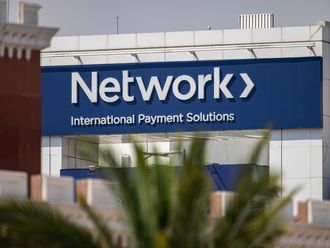
The most valuable capital in any business is a committed workforce — employees who will drive a few extra miles to seal a deal, be fired up for a weekend meeting and perhaps devote leisure hours to innovate solutions. Unfortunately, global surveys show an alarming percentage of professionals articulating inadequate job satisfaction and lower engagement levels at work. A recent poll by Gallup found that about eight in ten UAE workers are “not engaged” or “actively disengaged” in their work.
Needless to say, a large workforce with low job satisfaction will automatically result in low productivity. Many a time, professionals simply hold on to jobs they have no interest in, because of high salaries. However, demotivated staff are neither good for company morale, company revenue or customer needs, and organisations are beginning to understand the importance of investing in an engaged and empowered environment. When employees feel empowered and care about their jobs, there’s every chance of clients being attended to, swiftly and efficiently, which in turn contributes to company profitability in the long run.
Careers UAE 2018 is a time when all corporates should reflect upon not just hiring the best people but also thinking about ways to empower and engage the talent they have and those who are about to be hired.
Empowerment benefits
So, what are these concepts of employee engagement and empowerment? ‘Employee engagement’ is a workplace approach to ensure that employees are committed to the organisation’s goals and values, that they are motivated to contribute to the company’s success, even as they retain their own sense of well-being. ‘Employee empowerment’, on the other hand, is a strategy that seamlessly fits tasks, technology, information systems to the personnel, enabling them to make an emotional investment in the organisation, and go the extra mile to better serve the clientele. In the competitive banking industry — engaged and empowered employees, who share the same values, while also having confidence, knowledge and creativity, are our most important resources.
Empowering people to deliver outstanding customer experiences is about giving employees the freedom and authority to adapt and respond on the spot with solutions that are tailor-made to the customer. Today, customers demand effortless experience at banks and will seek out only organisations that are easy to deal with. Every time a company asks a customer to go to the next table, or come back another day, simply because our staff is not empowered with information, we damage a relationship, which ultimately hits our profitability.
Instilling empowerment
Instilling a culture of empowerment and engagement requires dedication from every level of leadership. There is no fixed formula for empowering employees, and each organisation must find its own unique model. There are, however, some ground rules. Empowerment requires company seniors to share information, resources, and a degree of power so that employees can make decisions real-time. Employees must feel they have been endowed with trust and authority, their roles and responsibilities should be clear and they must feel pride in their work. In a highly competitive banking world, information, knowledge, training and collaboration within departments can spell the difference between success and doom, especially in a digital world.
Digital skills
Financial services, like most sectors, is constantly in transformation mode. Often, clients find it difficult to simultaneously cope with the swift digitisation of services, investment portfolios, along with routine banking needs. It is essential for front-line employees to be on top of their jobs. A smart organisation is one that uses the collective knowledge of its employee base and frames solutions for better customer service. It is also the organisation that takes advantage of digital and technological creations to help their employees finish their tasks more efficiently or faster.
Leadership role
Empowerment, however, is impossible without sound leadership and a high degree of trust within the hierarchy. This is a two-way dynamic process, where company leaders must have the ability to trust employees by distributing power, giving them access to information, exhibiting confidence and accepting new ideas. In this multi-cultural context, each organisation must frame its performance management systems keeping various cultural sensitivities in mind.
Employees after all, are the backbone of a company — and giving them real autonomy and giving them the platform to change a core element of a company’s competitive strategy can result in great service improvement.
Hind Al Attar is the Head of Human Resources, Noor Bank. Opinion expressed here is personal and do not reflect the views of the bank or the newspaper.












